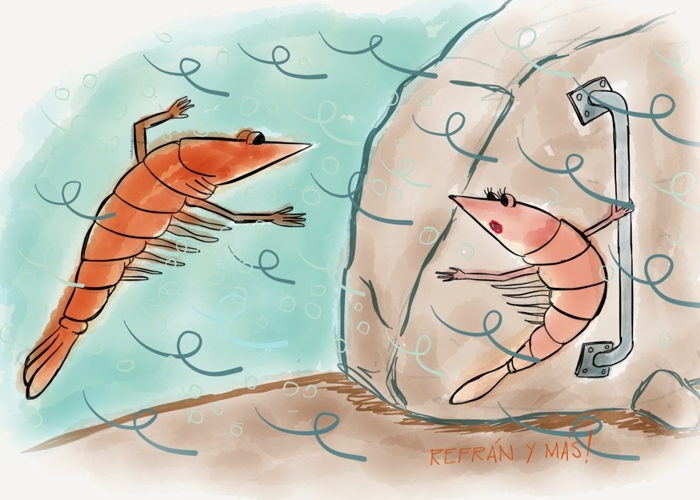Que Significa El Refran En Boca Cerrada No Entran Moscas Wikipedia
Traducción: "En boca cerrada no entran moscas." Traducción literal: "Hablar es plata, callar es oro." "Gegen den Strom schwimmen." Traducción: "Nadar a. "En boca cerrada, no entran moscas": "The mouth Usually this "refrán" is used in passional themes, where there was love, there is always some left. Or talking. El refrán es una frase que presenta en sentido figurado una moraleja. La moraleja es la En boca cerrada no entran moscas. Donde manda capitán no manda.
Spanish proverbs
Used when someone leaves a chair and someone else takes it or finders keepers. Meaning, do not give more information than needed.

You should make your own mistakes. Nobody DOES commit the same error twice. The second time, it is his fault.
REFRÁN EN BOCA CERRADA NO ENTRAN MOSCAS .mov
Or, fool me once shame on you, fool me twice shame on me. Always look for the positive side of things.
Es una realidad que las moscas pueden meterse en la boca de las personas ( atraídas por el olor), y cuando eso sucede, es algo muy desagradable. Por esa. Se dice en alabanza de la discreción y de lo importante que es, a veces, saber callar. Diccionario de dichos y refranes. en boca cerrada no entran moscas — es mejor callar; no hablando no hay riesgo propio; Joanna García·Michael Lopez Alegria·Martin Sheen· flagicon|Spain flagicon|USApoptime = Wikipedia.
No way I'm returning to Mexico. El hermano de Sandra se burla al momento: La maestra le dice a Juanito: Un tercer alumno, que también ha presenciado toda la escena, le dice posteriormente a Juanito: Molesto por su intromisión, Mario le dice a Luis: The written evidence of the use of Spanish proverbs goes far back in Spanish literature.

El Cantar de Mio Cidwritten at the end of the 11th or the beginning of the 12th century, is the first instance. The first anthology of Spanish proverbs, Proverbios que dicen las viejas tras el fuegowas written by Íñigo López de Mendoza, Marques of Santillana 15th century.
Also in the 15th century was written the Seniloquiuman erudite and anonymous work containing a compendium of Spanish sayings and proverbs with commentaries.
En boca cerrada no entran moscas refrán
And then, of course, in the 17th century there is the incomparable Don Quijote de la Mancha by Cervantes. His thinking habitually relies on the authority he vests in the wealth of popular cultural wisdom expressed in proverbs, which he continually quotes. In many of his utterances there is reference to one and sometimes to more proverbs.
Solteros De Adriana Azzi El Nacional Diciembre 2018Paginas Juegos Pc 2018 Gratis